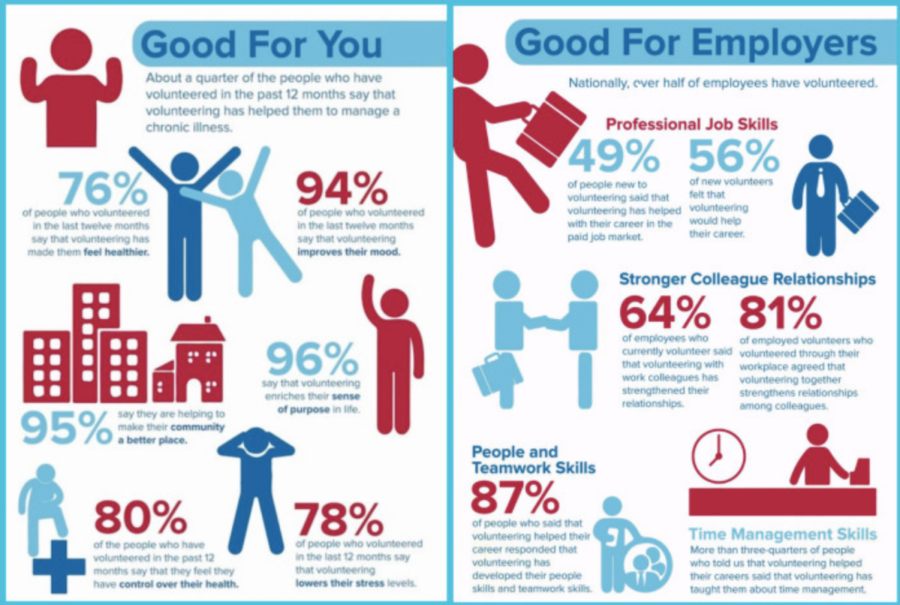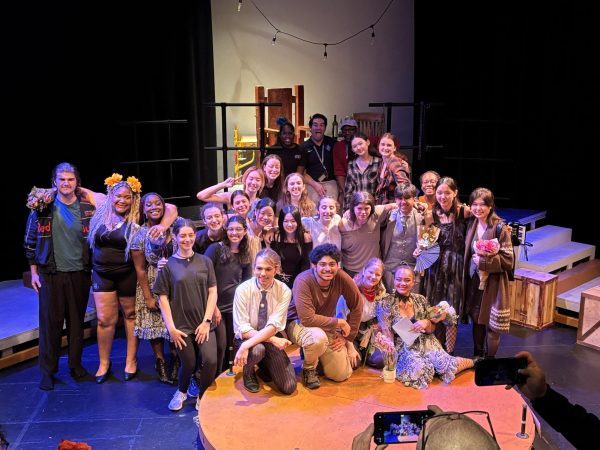Why is Volunteering so Important?
An infographic that helps Village School students visualize the benefits of volunteering and why it is important.
Volunteering can be viewed by high schoolers as an inconvenience. Every year, students hear the same thing from their college counselors: Complete 10 hours of community service each year. But why? Why do counselors as well as colleges, internships, and clubs stress the importance of having a wealth of community service experience during a student’s high school years?
Many Village teachers and staff have seen a huge impact on students that volunteer.
“[Volunteering can] build empathy among fellow human beings as well as inspire a life-long volunteer,” said Kerri Morgan, a psychology teacher and CAS Coordinator.
“Volunteering is [also] important to understand the needs of the community that one lives in,” said Maria Correa, one of the four The Village School college counselors.
In addition to the teachers and staff, students, such as sophomore Tommy Wan, have also seen many benefits from volunteering, including that it can help a person grow and integrate part of themselves into society.
Besides its social impact, volunteering can also help personal development through fostering time management skills in students, and increasing their sense of living and belonging through creating a feeling of inclusion and acceptance within the community. Although, some high schoolers might see volunteering as a filler for college applications, having multiple volunteering experiences can help one build his/her resume as well.
“On a resume, volunteering can say a lot about a student,” said Tekedra Pierre, Director of Experiential Learning and Entrepreneurship Diploma and Internship Programs. “Volunteering does play a role in being accepted for internships because it shows that students can manage their time, and in some cases display leadership skills. In the case of internships in the medical field, volunteering is highly regarded as it shows demonstrated interest in the field when a student volunteers with organizations directly related to healthcare.” Although volunteering has proven to be important in high school, many students struggle to balance their time between volunteering and other hobbies, extracurriculars, and academics. Pierre however advises that time management is key. “Set goals and learn good time management and decision making skills in order to be successful all around,” said Pierre. “It would be ideal to have 1-2 volunteer opportunities per semester, or get involved with an organization that has ongoing opportunities in a specific area.”
Although students may prioritize academics over volunteering, students advise their peers to volunteer whenever they get the opportunity.
“Volunteering three times a month is enough in my perspective because [I] always put academics a little ahead of volunteering,” said sophomore Tommy Wan. “Don’t waste time doing aimless things and when you have time, go help out. Don’t procrastinate because time management is key here.”







